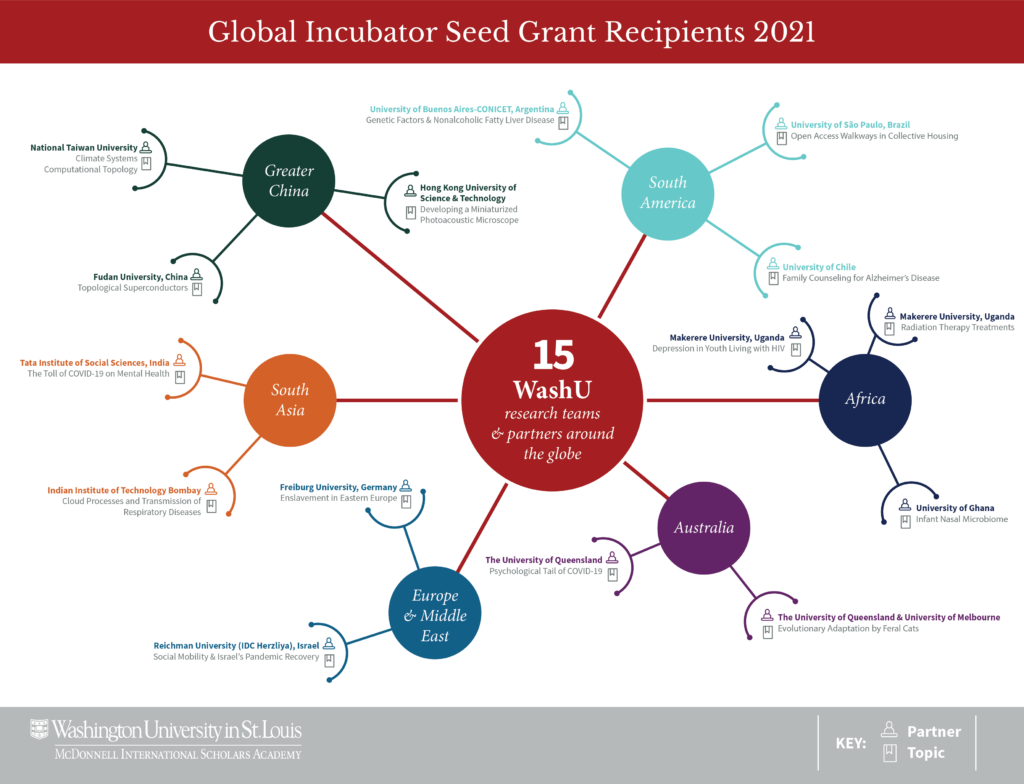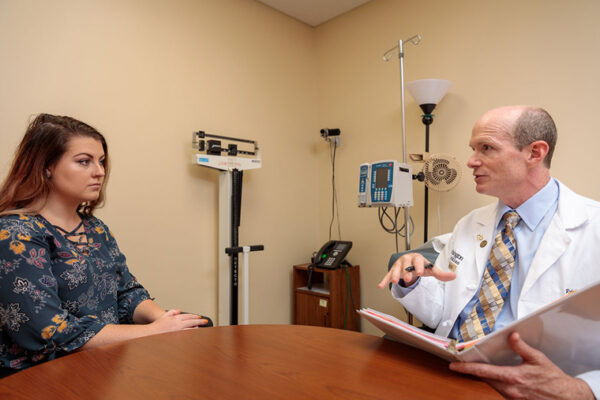The McDonnell International Scholars Academy at Washington University in St. Louis is committed to deepening and strengthening research, connections and collaborations with researchers around the globe. A new round of recently awarded Global Incubator Seed Grants from the academy will help kick-start more than a dozen high-impact innovative projects.
The program was intended to broaden the ties in Africa and Latin America, while deepening relationships with McDonnell Academy partners in other regions. The grants went to research collaborations taking place on five continents.

More than five-dozen teams applied for funding to support research in 30 countries; 15 projects were chosen and will receive between $10,000 and $25,000 each. Public health, collective housing and fallout from the COVID-19 pandemic are among topics the projects will explore.
“COVID is creating a unique situation and making it harder to keep and make progress in international collaborations,” said Jorge Llibre-Guerra, MD, assistant professor of neurology at the School of Medicine. His newly funded project focuses on genetic testing for an inherited form Alzheimer’s disease for people in Chile. “The projects funded by the McDonnell Academy will help to address this need in countries like Chile,” he said.
Llibre-Guerra, along with colleagues at the University of Chile, seeks to identify families there who might benefit from genetic testing for Alzheimer’s disease markers and associated genetic counseling.
“Chile recently implemented a national plan for dementia, but it does not include tailored diagnostic or therapeutic interventions for dominantly inherited Alzheimer’s disease (DIAD),” Llibre-Guerra said. “We believe that the number of families featuring DIAD in Chile might be underestimated due to the high cost and lack of access to genetic testing.
“In addition, there are no practice standards or consensus-based guidelines for genetic counseling of familial Alzheimer’s. Therefore, the results from this project may shed light on the need for enhancing medical genetic services and family counseling in Chile, leading to additional support from stakeholders and policymakers.”
Researchers from the Brown School and the School of Medicine will use their grant to work with colleagues at Makerere University in Uganda, studying the best ways to develop mobile health interventions — such as a text message or app — for youth living with HIV in Uganda. Young people living with HIV commonly face depression, which can adversely affect their treatment outcomes.
“Mobile health interventions are among technological approaches to delivering psychosocial interventions outside of the traditional clinic setting. Our pilot study is a first step in understanding the mobile health needs of depressed youth between 14 and 17 living with HIV,” said Proscovia Nabunya, research assistant professor at the Brown School, who is partnering with Patricia Cavazos-Rehg, professor of psychiatry at the School of Medicine.
“Findings from this formative study will inform the development of a culturally appropriate, youth-informed mobile health intervention protocol to address depression — a major barrier to HIV treatment adherence among youth.”
And Washington University researchers are working with counterparts at Hong Kong University of Science and Technology (HKUST) to examine high-tech, low-cost solutions for medical monitoring of a variety of vascular disorders. They’re focused on biomedical imaging and hope to develop a miniaturized monitoring system to allow accurate point-of-care solutions for patients.
“My lab has been working on functional photoacoustic imaging,” said Song Hu, associate professor of biomedical engineering at the McKelvey School of Engineering. “In blood vessel imaging, we use hemoglobin as a contrast agent. By looking at the hemoglobin molecules, we can use laser to visualize a vessel and how it functions.
“Similarly, we can look at other important biomolecules by tuning the wavelengths, or the color of the laser. If you further tune the wavelengths to infrared, you will be able to visualize glucose. If we can further develop this technology to make it sensitive enough, we might be able to monitor glucose levels noninvasively.”
While Hu is focused on the software piece of the project, his partner Terence Wong, assistant professor at HKUST, is developing the small-scale tech to accurately measure a patient’s data.
“Hopefully in the future, we can make a highly portable and wearable device, so you can have a continuous, accurate monitoring of various systems in the human body,” Wong said.
The grants were made possible thanks to the generosity of Bethany and Bob Millard. To view a full list of the projects receiving seed funding, visit the university’s global website.



